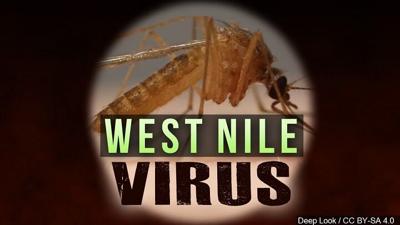CHICAGO (WSIL) -- The Illinois Department of Public Health has confirmed the first human case and first human death of West Nile virus in Illinois for 2022.Ìý
A person in their late 70s in Cook County became ill at the beginning of August and later died. WNV was a contributing factor in the death.Ìý
“This unfortunate first reported death of the year from West Nile virus in Illinois is a reminder that this disease poses a risk, especially to those who have weakened immune systems,� said IDPH Director Dr. Sameer Vohra. “While the weather is warm and mosquitos are breeding, we should all take precautions to protect ourselves from mosquitoes and the viruses they carry by wearing insect repellent and eliminating standing water around our homes where mosquitos breed.�
So far in 2022, there have been positive mosquito batches in 30 counties, including Jackson County, and eight birds have tested positive in six counties.
This year, the first mosquito batch to test positive for West Nile virus was collected on May 17, 2022, in Will County. The first bird to test positive for West Nile virus this year was collected in Logan County on July 5.
IDPH encourages the public to Fight the Bite by practicing the three “R’s� � reduce, repel, and report:
- REDUCEÌý- make sure doors and windows have tight-fitting screens. Repair or replace screens that have tears or other openings. Try to keep doors and windows shut.Eliminate, or refresh each week, all sources of standing water where mosquitoes can breed, including water in bird baths, ponds, flowerpots, wading pools, old tires, and any other containers.
- REPELÌý- when outdoors, wear shoes and socks, long pants and a light-colored, long-sleeved shirt, and apply an EPA-registered insect repellent that contains DEET, picaridin, oil of lemon eucalyptus, or IR 3535 according to label instructions. Consult a physician before using repellents on infants.
- REPORTÌýâ€� report locations where you see water sitting stagnant for more than a week such as roadside ditches, flooded yards, and similar locations that may produce mosquitoes. The local health department or city government may be able to add larvicide to the water, which will kill any mosquito larvae.














